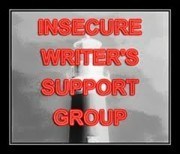Complete or not complete: that’s the question
 A post for the Insecure Writer’s Support Group
A post for the Insecure Writer’s Support Group
Recently, I submitted a short story to a magazine, and it got rejected. No surprise there, it happens to every writer. What was a surprise was the reason for the rejection. The usual rejection is worded something like: “Thank you for submitting your story to us. Unfortunately, that’s not what we are looking for at the moment.” Instead, my rejection email stated that the editor liked the story but thought it was incomplete. “Next time send a complete story,” she said.
I was puzzled. I was sure it was complete. I didn’t try a cliffhanger. In the beginning of the story, I promised to deliver my heroine from point A to point B, and I did. Of course, she has to figure out where to go from point B, but that’s another story entirely. Or so I thought.
I asked some friends to read the story and comment whether or not it was complete. I was sure they would side with me and say that the story was complete. It didn’t happen. Everyone who read the story said: “Yeah, interesting story, but I’d like to know more about the characters. Did they find xxxx? Did they reach yyyy? What happened next?”
Obviously, if several people say the story is not finished, it is not. I have to think up another ending. I must continue the story, and I have nothing against that. I know when happened to the characters next. But why didn’t I see it myself?
There is another quandary too. The story is long as it is, over 8000 words already. If I continue the way it deserves, it would stop being a short story. Should I try to make it a novella? Or should I just attach a slap-dash ending – another page or so – and call it ‘done’?
Do other writers wrestle with such questions? Has it ever happened to you? How do you solve such problems? What constitutes an ending everyone agrees upon?




